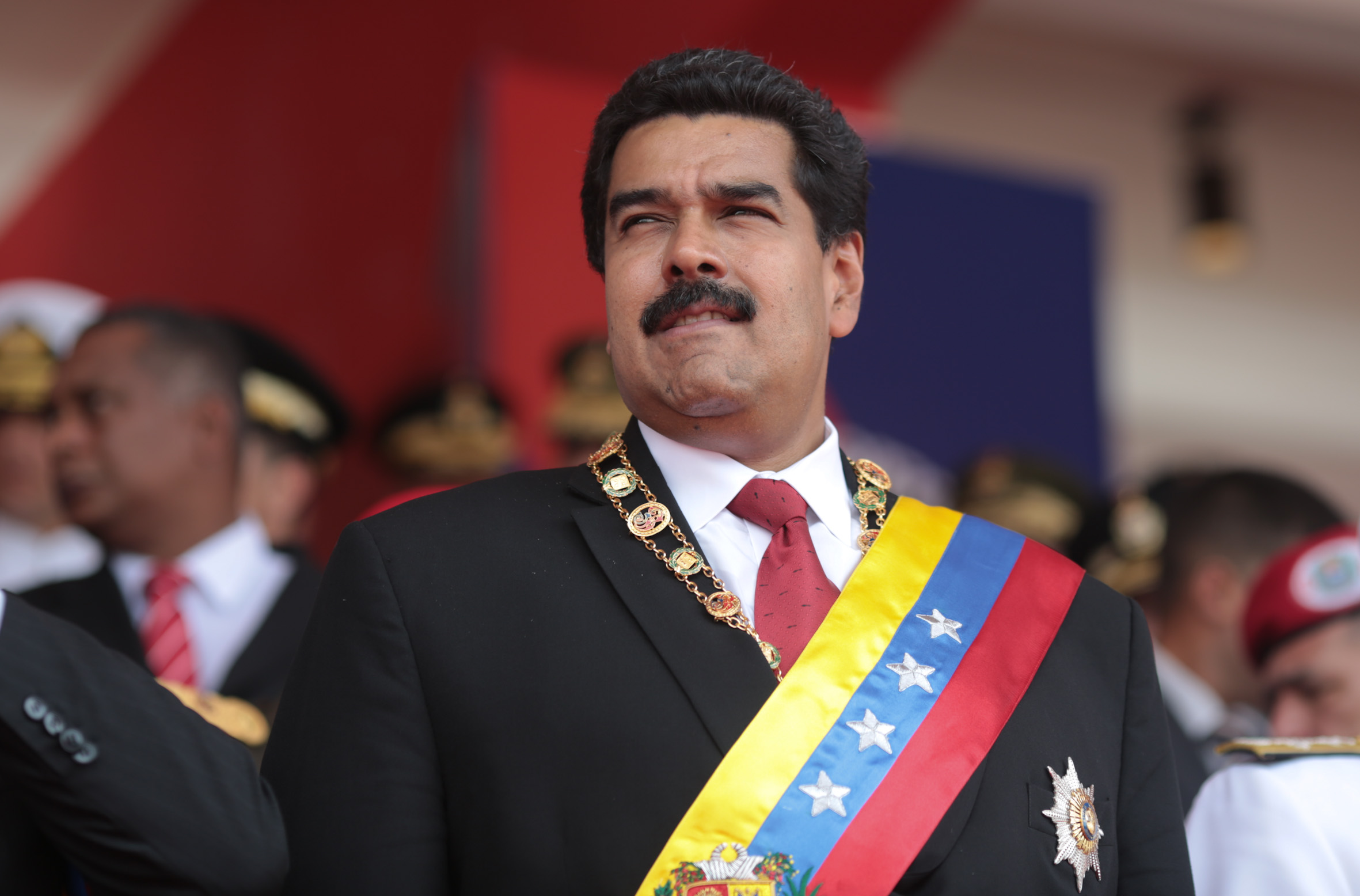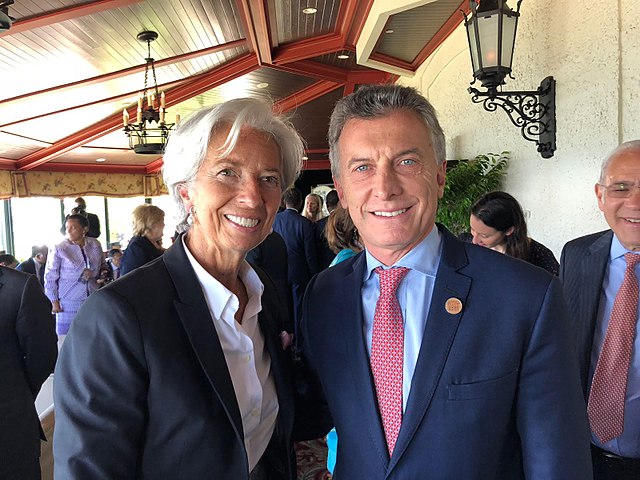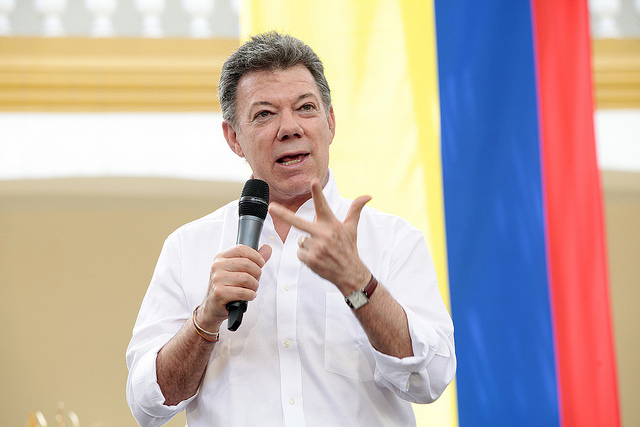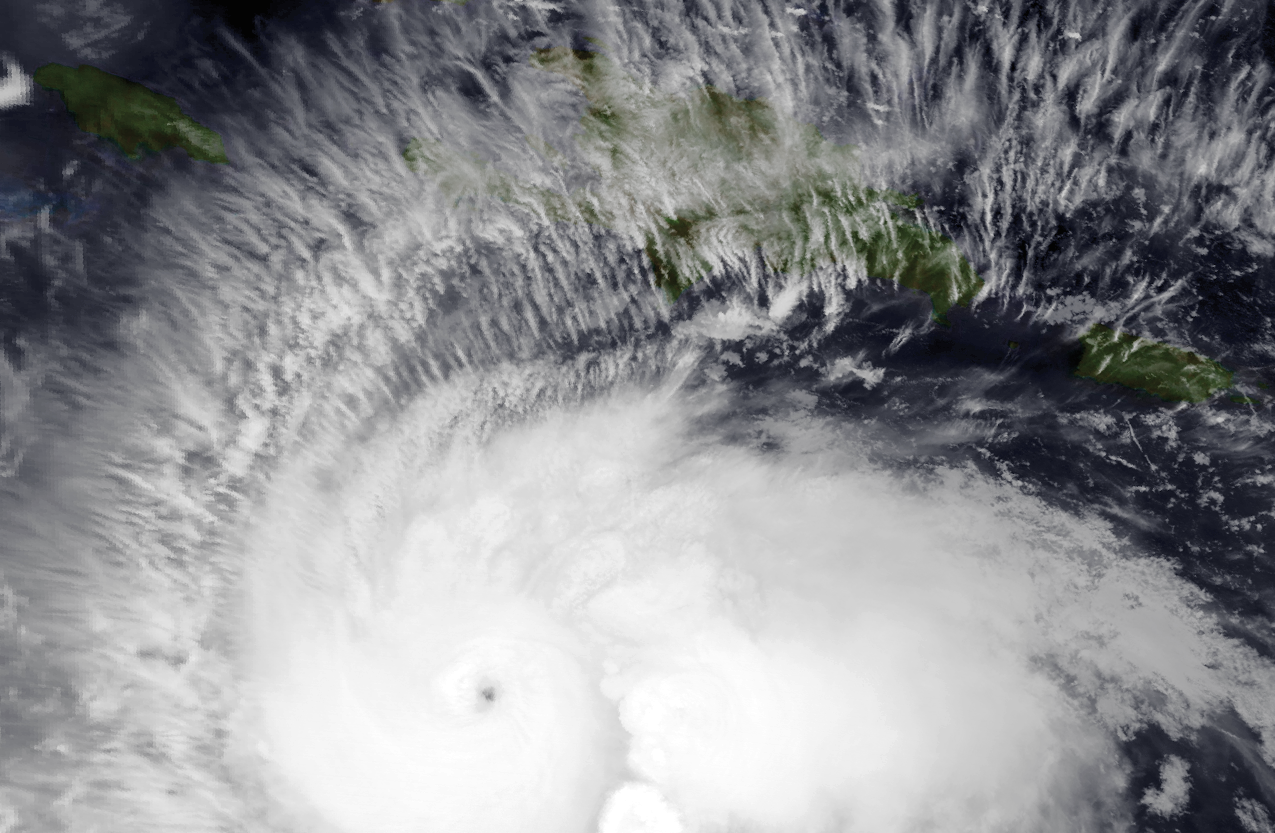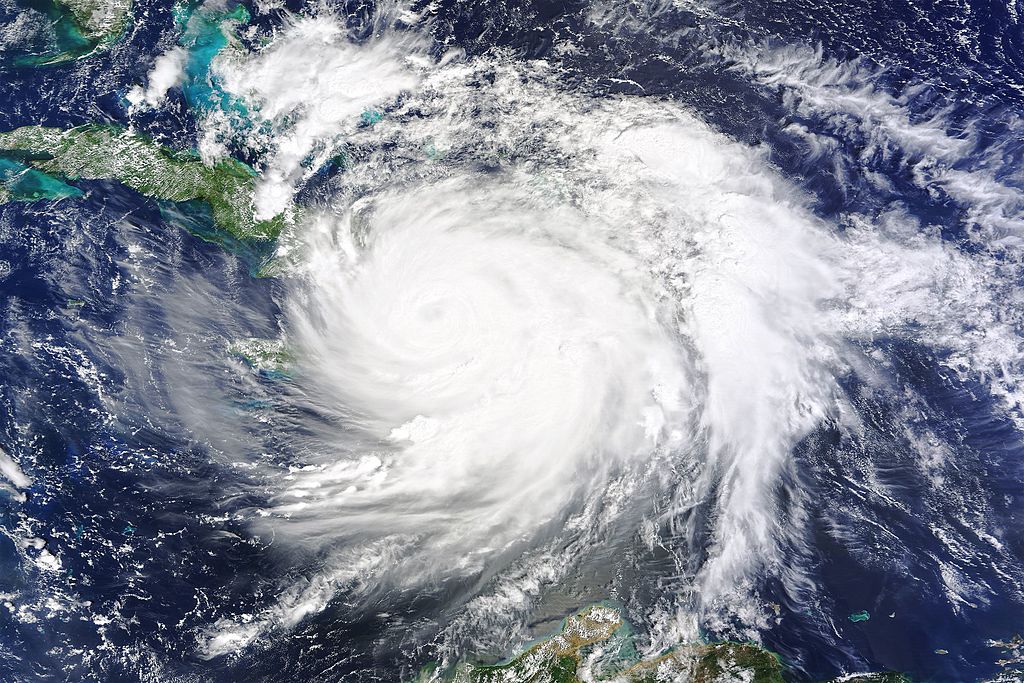
Cuba, Haiti, Latin America: Week in Review, United States
Hurricane Matthew Leaves Hundreds Dead In Haiti
October 7, 2016 By Staff
TODAY IN LATIN AMERICA
The death toll from Hurricane Matthew, which struck Haiti on Tuesday, continues to rise, with Reuters reporting this morning that nearly 500 people have died. Matthew is the strongest hurricane to hit the region since 2007. The 145 mph winds and extreme rains have left some 15,000 people homeless in a country already suffering from crumbling infrastructure, while aid workers struggle to reach the most affected areas.
Even more worrisome, massive flooding could provide the conditions for another cholera outbreak. Three cases of the illness were already reported in the southern peninsula town of Jeremie, an aid worker for the humanitarian organization CARE told The Washington Post. At a hospital in the capital, Port-au-Prince, staff lacked sufficient antibiotics or intravenous fluids to treat the disease.
The hurricane has since continued north, hitting Florida’s east coast early Friday. Winds over 100 mph have been recorded outside Cape Canaveral and some 300,000 people had already lost power by this morning. Authorities in three states issued mandatory evacuation orders for more than 3 million people ahead of the storm.
Cuba was also hit hard in the east, but hasn’t reported any loss of life due to the hurricane, according to The Miami Herald.
COLOMBIA PEACE TALKS UPDATE
Negotiations between the Santos administration and “No” campaign leaders who quashed the current peace deal with the FARC continued Thursday. Santos is trying to expand the talks to include more representatives from the “No” camp, including evangelical leaders, in what La Silla Vacía views as an attempt to dilute former President Alvaro Uribe’s power in the negotiations.
The “No” campaign plunged into controversy Thursday, when its manager, Juan Carlos Vélez Uribe, said in an interview with La República that the effort “focused on a message of indignation” rather than the substance of the peace deal. “We wanted the people to go out to vote while fed up,” Vélez said. On the eastern coast, they focused the message that the deal would put Colombia on the path toward perverse Venezuela-ism, while among evangelical communities, the campaign pushed the idea that the deal would undermine traditional family values.
Vélez also bragged that it was so cheap to sink the peace agreement. “The ‘No’ campaign was the cheapest and most effective in a long time,” Vélez said. “Its cost-benefit is very high.” He named several of the campaign’s top 60 contributors.
The tone-deaf comments revealed that the “No” campaign’s cynical approach tilted toward the dishonest, and led to wide criticism and rebukes from Uribe. Vélez tried to walk the comments back later in widely circulated press statement offering his resignation to the conservative Centro Democrático party.
Juan Manuel Santos won the Nobel Peace Prize this morning, which may lend an extra air of international support to his administration’s peace efforts. “This award should also been seen as a tribute to the Colombian people, who despite great hardships and abuses, have not given up hope of a just peace,” committee chairwoman Kaci Kullmann Five said.
Uribe offered a backhanded compliment on Twitter.
Felicito el Nobel para el Presidente Santos, deseo que conduzca a cambiar acuerdos dañinos para la democracia
— Álvaro Uribe Vélez (@AlvaroUribeVel) October 7, 2016
Colombia’s second-largest guerrilla group, the ELN, released a hostage on Wednesday, finally acceding to a longstanding pre-condition from the Santos administration to move forward with peace talks. Fabio Ardila, the former mayor of the northern town of Charala, was held by the ELN for three months. The group had said prior to Sunday’s referendum that they wanted to move forward with peace talks and maintained that position after the “No” campaign won.
The FARC and Santos administration are expected to update the public today on their talks in the aftermath of the referendum.
HEADLINES FROM THE WESTERN HEMISPHERE
NOT URGENT BUT INTERESTING: The Inter-American Dialogue released a report this week about the history of Chinese immigration in Latin America.
NORTH AMERICA
Mexico’s National Commission on Human Rights says officials have not properly handled the remains of 119 bodies buried in the state’s common grave, prompting the commission to issue recommendations to create national standards for the treatment of human remains. They also criticized the state district attorney’s failure to identify 21 of the bodies by name and investigate 44 cases where the deaths appear to have been violent.
RELATED: The New York Times Editorial Board sounds very displeased with the State Department’s decision last month to certify that Mexico had made enough progress on human rights to receive its full security aid package.
In other bad news for Mexico, Fitch Ratings dropped its forecast for the country’s economy to just 2 percent growth for the next couple of years, docking them about half a percentage point per year.
Donald Trump learned about the word “Latino,” and now he wants to tell the world.
Donald Trump says in Nevada “Hispanics” like to be called “Latinos” #TrumpTownhall pic.twitter.com/1oOoclco0A
— Raw Story (@RawStory) October 7, 2016
CENTRAL AMERICA
SALA NEGRA: The Salvadoran military and the national civil police have killed an average of 35 suspected gang members since the government launched an offensive against organized crime in January of 2015, El Faro’s Roberto Valencia reports. The government defends its record, but one expert consulted by the publication said the pattern raises concerns about summary executions.
CARIBBEAN
Hundreds of people gathered in Havana on Thursday to commemorate the 40th anniversary of the 1976 downing of Cubana de Aviación Flight 455, which killed 73 people.
Andes
Two Venezuelan public health associations confirmed diphtheria has been spreading in the southern state of Bolívar and that 17 people have died from the disease.
Colombian Finance Minister Mauricio Cárdenas assured the International Monetary Fund and World Bank that the country’s markets are stable at meetings in Washington, despite the country’s plunge into political turmoil following its astounding rejection of the peace deal with the FARC during Sunday’s referendum.
PDVSA, the Venezuelan state-run oil giant, is negotiating with bondholders to swap notes for securities backed by a 50.1 percent stake in Citgo, which PDVSA valued at $8.3 billion, by Thursday evening. With just $12 billion of foreign currency reserves at 13-year low, investors worry about potential default in interest or principal payments where the PDVSA bonds yield more than 20 percent, Bloomberg reports.
Chinese Foreign Minister Wang Yi met with Peruvian President Pedro Pablo Kuczynski as part of a trip to Latin America that also includes visits to Ecuador, Bolivia and Colombia. China’s visit consolidates Peru’s ties with its largest trading partner for future collaboration on infrastructure and agriculture projects. Chinese President Xi Jinping will also be visiting Peru for the Asia Pacific Economic Cooperation Summit in November.
China would provide Bolivia a $4.86 billion loan to finance 12 construction projects. Large-scale projects include building a steel plant and a hydroelectric dam in eastern Bolivia and expanding the Viru Viru airport in Santa Cruz.
SOUTHERN CONE
Approval ratings for Chilean President Michelle Bachelet pulled out of their nose dive in September, after plunging to a low point of 19 percent in August. Despite enjoying high ratings after her first term, Bachelet has faced financial challenges to her economic and education reform goals due to a financial slump that resulted from a decline in the price of copper, Chile’s top export.
Image: WikiCommons.
